One in three people around the world are connected to the internet. This is not enough.
In a world of 7 billion people, 4.2 billion still can’t access the internet. 3.8 billion of whom live in emerging markets, specifically Africa, the Middle East and Asia.
Market research in this space is fascinating, because as we look at penetration rates we see that even though the lion’s share of internet is being driven by the developed world, that that in fact only one in three internet users comes from those countries. 65% of internet users are from the developing world today, 35% from the developed.
The takeaway here is that most everyone’s assumptions about the internet are wrong. The fastest growth is already in the emerging markets, and that growth is only accelerating. If you’re going to pick a place to put your money, it’s not in the US or Europe, it’s in Africa, the Middle East and Asia.
My new job is to truly understand these numbers. As I talk to investors about investing in BRCK, our new router/modem/smart battery device made for this part of the world, I’m expected to know about the market. So I know things like this: if only 24% in the developing world are connected to the internet, then BRCK targeting 1% of these 3.8 billion unconnected people means a potential market size of $7.7 billion.
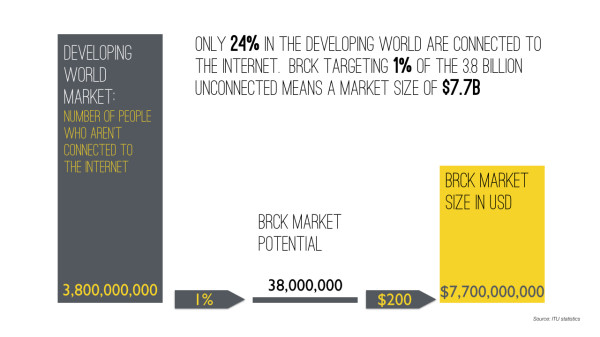
Only 24% in the developing world are connected to the internet. BRCK targeting 1% of the 3.8 billion unconnected means a market size of $7.7B
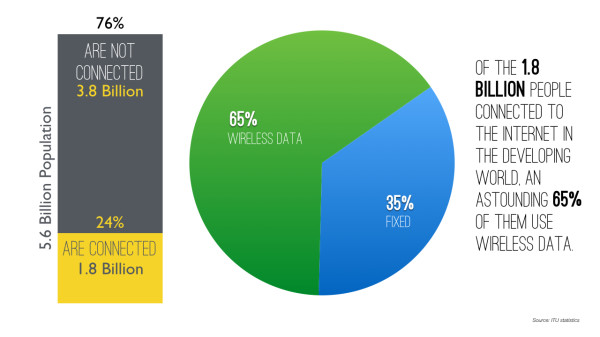
Of the 1.8 billion people connected to the internet in the developing world, An astounding 65% of them use Wireless Data.
That’s a big number, and it’s why I’m so excited about the future.
[Stats source: ITU]
Infrastructure plays
In an earlier blog post I talked about the “rail lines of connectivity“, talking about the pioneering engineers of yesteryear who built the railroads, and who’s rails we still ride on for communication today. Where Physically connecting people and things was the great challenge of their time, digitally connecting people and information is the great challenge of ours.
There are other big infrastructure plays right now, specifically in communications, and heavily internet-focused. If the 90’s and 2000’s were characterized by the rise of mobile infrastructure, the 2010’s are equally characterized by the internet.
It started with the undersea cables in the late 2000’s, and is now about terrestrial cable and growth in technologies that cost less but spread over greater regions. The race is on to connect the world – at least to build the road and rails for the internet, if not the driveways into people’s homes and offices.
For the former, Google’s just-launched “Project Link” in Uganda underscores an intent to increase speeds and decrease costs by providing Google fiber on the continent. There’s also no lack of investment available for companies digging trenches for terrestrial cable across the African continent, this is private equity fund territory, and it’s booming.
Both Google and Microsoft are experimenting with the widely available TV White Spaces spectrum, which can spread wider and costs less other solutions over broad areas of dispersed populations. Then there is Project Loon, a true moonshot idea by Google to cover wide areas of the developing world with internet balloons floating at 20km.
I’m often asked why the BRCK is so important for internet growth in Africa and other parts of the world with poor infrastructure. This is why: so many focus on building the backbone, and so few focus on the last-mile, the end user.
The large international tech companies are putting a lot of effort into cracking open the developing world market as it’s where the growth for the next ten years comes from. We all need this, and I’m a big fan of what both Google and Microsoft (as well as the private equity investors) are doing.
We also need tools that work here, devices that are created to work in areas where there might be connectivity, but no power. Where the roads are still dirt and dust and rain affect all of you your electronics. The BRCK was designed for this world, it’s designed in Kenya (where we live) and it’s this last-mile problem that we are committed to solving.
We’re taking investment right now, closing a convertible debt round in mid-December. If you want to take part of this seismic shift in the internet, you can join us at https://angel.co/brck.
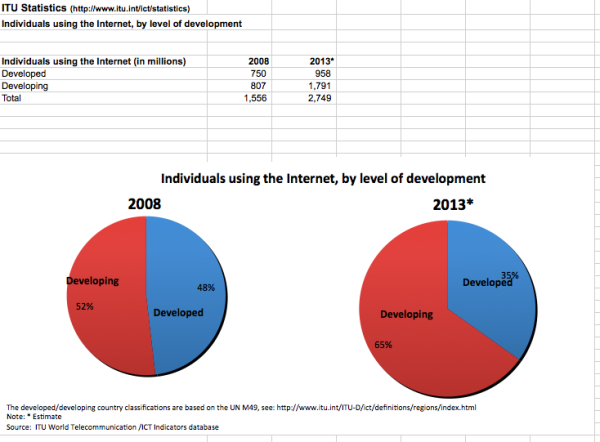
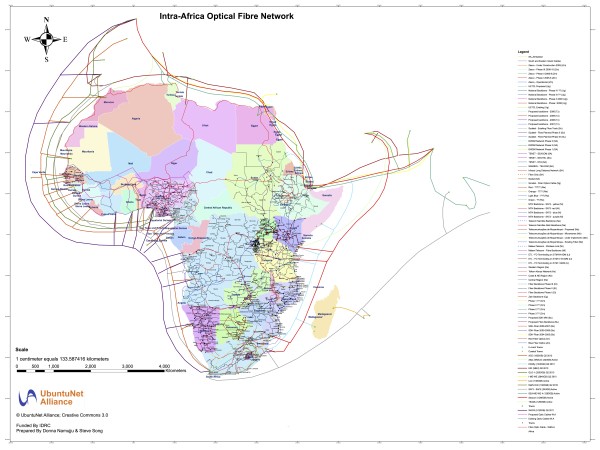
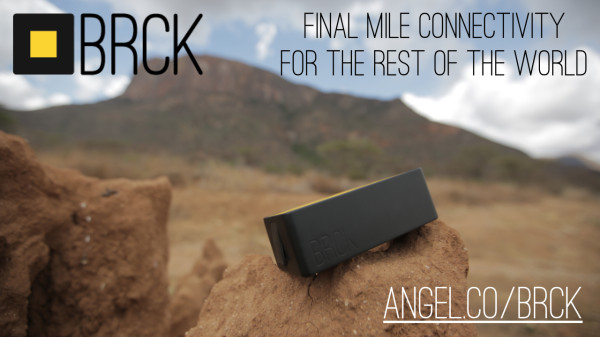
0 Comments
1 Pingback